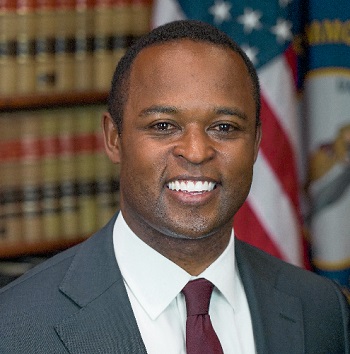FRANKFORT, KY – Attorney General Daniel Cameron joined a 27-state coalition in filing an amicus brief to ask the U.S. Supreme Court to reject so-called "Chevron deference", a legal doctrine that can require courts to defer to a federal agency's interpretation of a statute. Chevron deference has allowed the federal bureaucracy to expand its authority without the judiciary as a backstop.
In Loper Bright Enterprises v. Gina Raimondo, Secretary of Commerce, four New Jersey fishing companies challenged a federal-agency rule forcing commercial fishermen to pay the salaries of agency observers posted to their vessels. A lower court applied Chevron deference and upheld the imposition, prompting an appeal to the Supreme Court.
"For decades, a failed legal theory has allowed federal bureaucrats to freely impose big-government policies on the American people," said Attorney General Cameron. "We can't give federal agencies such enormous power any longer—this doctrine is bad for our system, and it's past time to get rid of it."
In its brief, the coalition of attorneys general argues that Chevron deference has been abused and manipulated to allow federal agencies to run amok and expand their authority. "Chevron's harms are as real as they are widespread," the coalition brief states. "This case presents an opportunity to stop them from spilling forward, and the Court should take it."
The doctrine also strips the American people of the ability to have their voices heard, the brief argues. "For far too long, agencies have enjoyed more influence than our constitutional system should tolerate." By stacking the deck in the agencies' favor, states lose "not only [their] authority to regulate in ways that matter most, but also [their] right to have the people [they] send to Congress make those calls if the federal government tries to take on these issues instead."
The coalition concludes its brief by asking the high court to do away with Chevron deference, or at least clarify that statutory ambiguity is not reason enough to defer to an agency's flawed views.
Attorney General Cameron was joined by attorneys general from Alabama, Alaska, Arkansas, Florida, Georgia, Idaho, Indiana, Iowa, Kansas, Louisiana, Mississippi, Missouri, Montana, Nebraska, New Hampshire, North Dakota, Ohio, Oklahoma, South Carolina, South Dakota, Tennessee, Texas, Utah, Virginia, West Virginia, and Wyoming in filing the brief.
To read a copy of the brief, click here.
###












